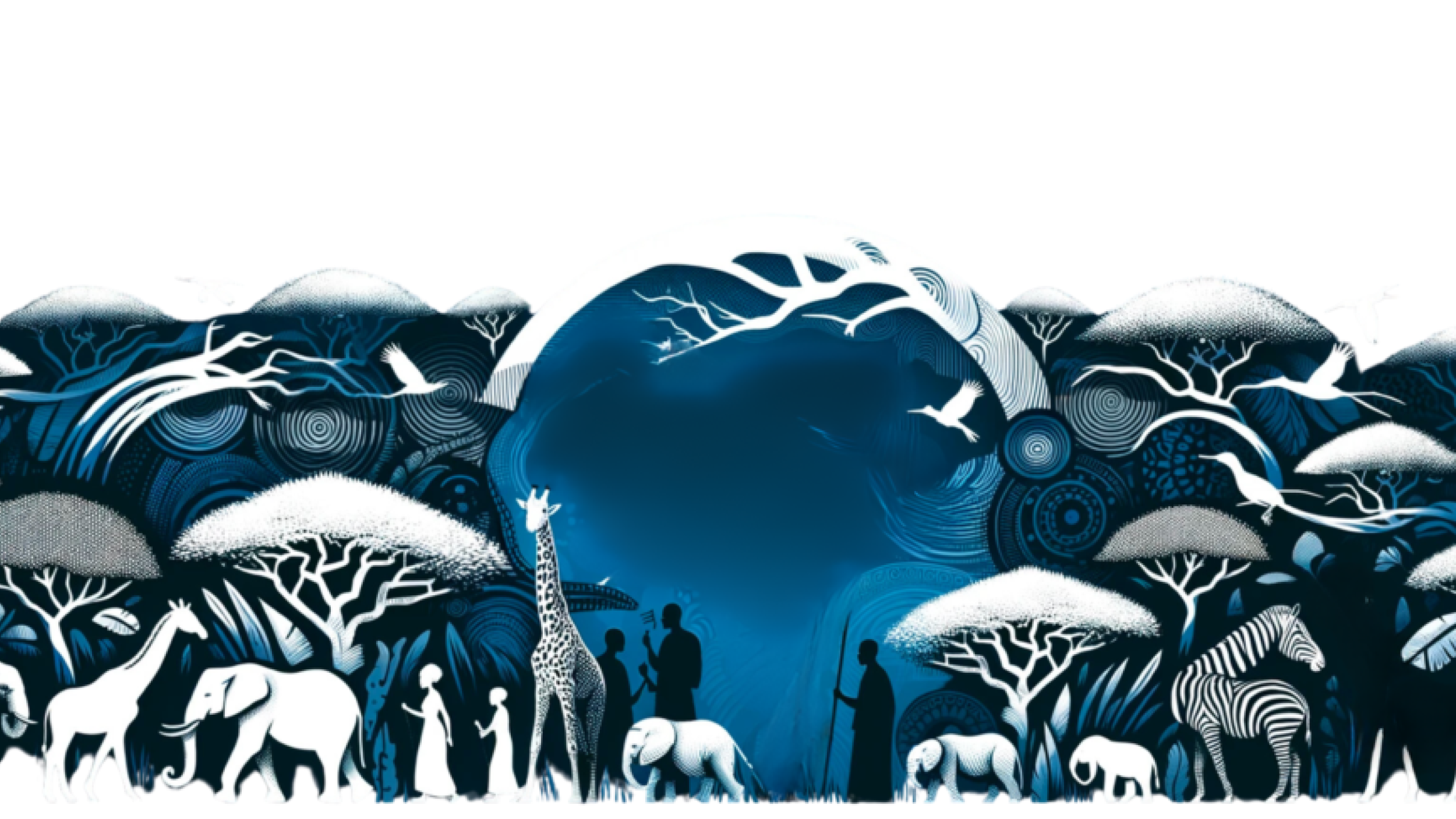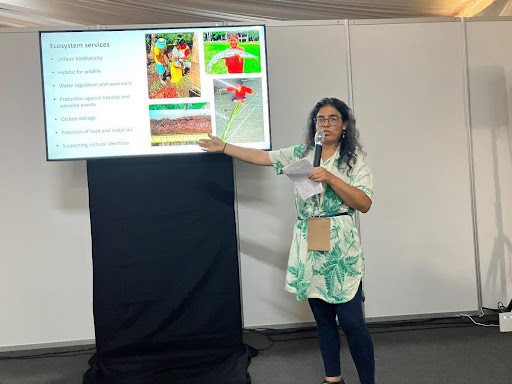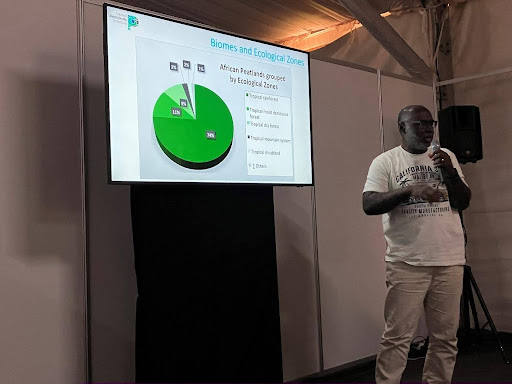
ATBC 2024 Conference: Global Peatlands Assessment highlights the ecology, threats, and conservation status of tropical peatlands
At this year’s 60th Annual Meeting of The Association for Tropical Biology and Conservation in Kigali, Rwanda (14-18 July 2024), members of the GPI Research Working Group presented a symposium on “Ecology, threats, and conservation status of tropical peatlands” showcasing the results of the Africa and Latin American & Caribbean chapters of the GPI’s Global Peatlands Assessment (GPA). The symposium was organised by Scott Winton from the University of California Santa Cruz, Kemen Austin from the Wildlife Conservation Society, both in the USA, Angela Gallego-Sala from the University of Exeter and Euridice Honorio Coronado from the University of St Andrews, both in the UK.
The focus of the symposium was on the role of tropical peatlands in the carbon cycle, emphasising their sensitivity to disturbance and climate change, and featured presentations on peatland distribution, ecosystem ecology, floristics, and the impacts of conservation threats and management strategies. Among the presenters of this symposium, there were three members of the Global Peatland Initiative Working Group. They presented on the state of African and Latin America and the Caribbean peatlands based on the Global Peatlands Assessment and research on leaf litter decomposition on forests and physico-chemical characterization of bogs in the Republic of Congo.

Dr Eurídice Honorio Coronado (University of St Andrews, UK; CongoPeat) presented the findings of the GPA’s Regional Assessment for Latin America and the Caribbean, which shows that the region contains 13% of the world’s peatlands. Many of these ecologically diverse peatlands are hydrologically intact and provide essential ecosystem services such as water regulation, carbon storage, and support for cultural identities.However, threats to peatlands are increasing from intensive resource extraction in lowlands,overgrazing in montane areas, and deforestation and drainage for urban and agricultural expansion (as seen across the tropics).Furthermore,peatlands are being damaged from new gas and oil exploration and infrastructure crossing peatlands, as well as the effects of climate change due to more frequent extreme flooding and drought events. Knowledge gaps remain in this region, specifically on peatland distribution and identification, with large uncertainties in area estimates.There is a need to produce more national peatland maps, such as the one done for Peru, and that also include montane peatlands.

Prof. Ifo Suspense Averti (Marien N’Gouabi University, Republic of the Congo; UNEP-IKI Congo Peatlands Project; CongoPeat) presented the findings of the GPA’s Regional Assessment for Africa. It shows that 91.7% of the region’s peatlands are still undegraded, with a major hotspot of value in the Congo Basin. In combination with their globally significant carbon storage capacity, this has earned the long-term protection of African peatlands a high place on the agenda of both the international community and the governments of the Republic of the Congo and the Democratic Republic of the Congo . Extensive data collection by the Marien N’Gouabi University team in collaboration with the University of Leeds and other universities has recently enabled researchers to produce the first map of the surface area, as well as the carbon stocks contained in these peatlands. Even so, knowledge gaps as to the exact extent and state of the central Congolese peatlands remain, leading to the proposal of a new Congo Peatlands Research Institute in Brazzaville, Republic of Congo.
The theme of this year’s ATBC Conference was “Achieving Inclusive Science for Effective Conservation, Adaptation, and Resilience in the Tropics”. It marks 60 years since the inception of the Association for Tropical Biology and Conservation and showcases how diverse the field of tropical biology has become through the collective experience of researching and conserving tropical ecosystems.